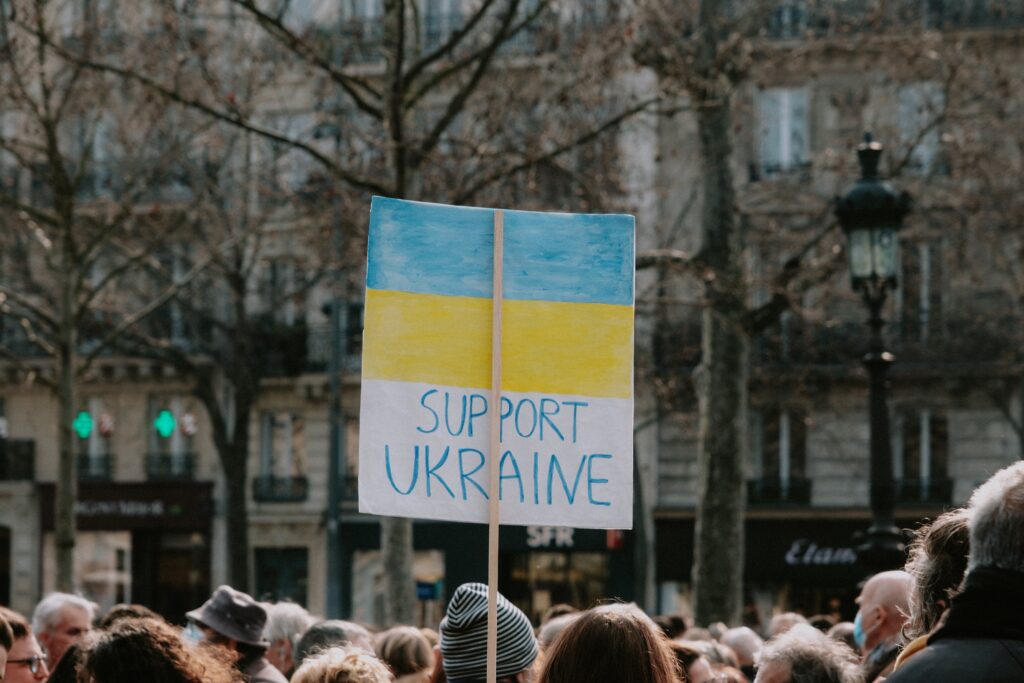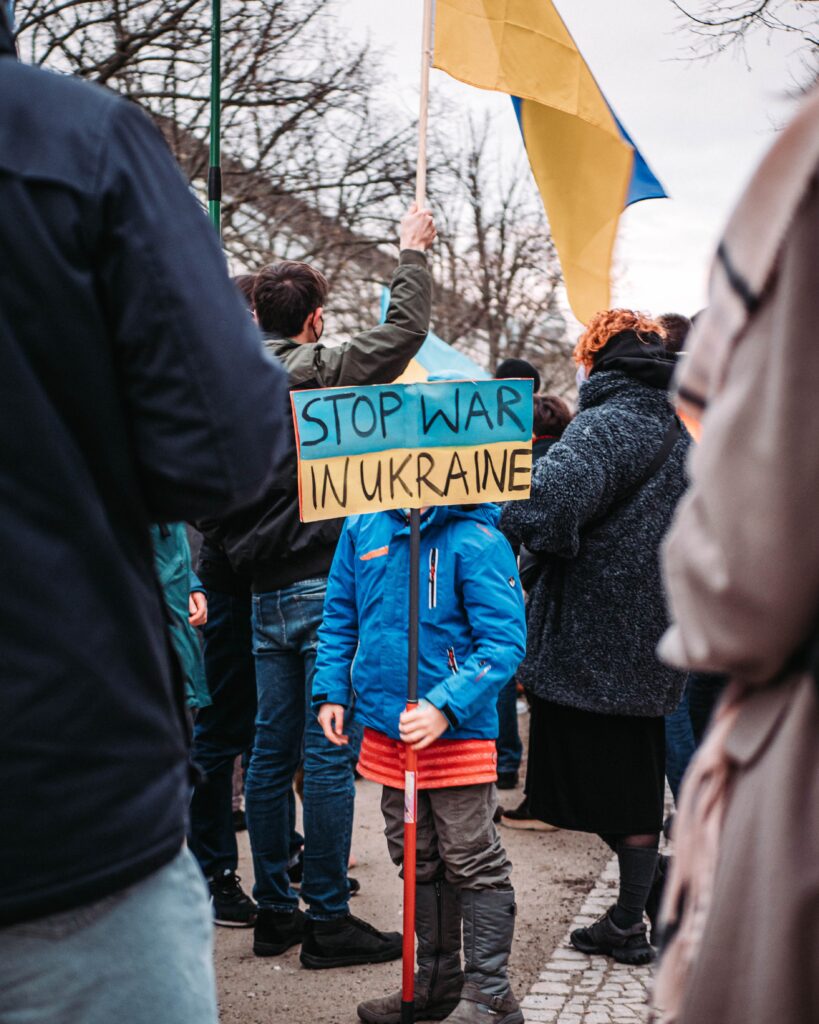Russia’s invasion of Ukraine is distressing and concerning, and it is understandable that children and young people may have questions or be seeking reassurance. So many of us adults have our own questions and anxieties, so of course many children and young people will have too.
Schools are well placed to discuss these issues with children and young people. One of our children regularly watches Newsround in class and a couple of weeks ago I overheard him telling his brothers all about what what happening in Ukraine. He explained it in a calm, simple way and was able to answer his brother’s questions on the matter too which really impressed me. He was also able to point out where both Russia and Ukraine are on a map.
Whilst schools are well placed to discuss this, just as with COVID, this is something that many people haven’t encountered before and may not even know themselves how they feel. We should not therefore rely on schools to take care of all these discussions. Whilst we don’t want to force conversations with our children at home, we should be open to our children asking questions and be ale to discuss these matters as and when they feel they want to.
Here is some useful advice for families and young people themselves, regarding how to talk to young people about distressing complex, and emotive news stories.
Explore a range of diverse perspectives
Establish the facts by pointing children towards trusted, reputable sources that explain the what, where, when, why and who. Start conversations with things like “can you imagine how someone your age might be feeling right now?”, to try and encourage thinking from a diverse range of perspectives.
You can share your views of course, but don’t inflict them on your child.

Be Honest
Children have to know above all else they can trust their elders, young children will hang on every word they say. It can be detrimental to the interests of children if you have told them one thing and they later find out that it’s not true. Teenagers are likely to know a lot already, so discussing it is important. Spend time talking to them about the current conflict in Ukraine. With so much social media and online presence, it is also good to talk about different perspectives and narratives. Check for misinformation, use facts to your advantage.
Try to stay calm or at least seem to be, even if you don’t feel it
Children often look to their parents and teachers as role models on how they should feel, but it’s okay to say, I’m a bit worried too and that you don’t know everything. Like with COVID-19, none of us have all the answers, so you don’t need to pretend that you do. Be aware that children are master eavesdroppers and their young ears pick things up from the next room without even trying. Be careful of how you are talking about the situation to other adults. Not saying one thing to them, and something very different in the next conversation which can be more worrying for children.
Listen to children

It is imperative to listen to what children think about what’s going on, and how they feel about it. For younger children who seem disconcerted, you should give them a chance to express how they feel. Set aside a few minutes for a chat. Ask them how they are feeling, and if they are worried about anything. Relate those feelings to your own. I always find car journeys and queues good times for discussions.
Don’t bring it up if children seem uninterested
Some children will be fascinated by what is happening in the world and want to know more, some will be worried, but others may show no interest at all and that’s fine. It depends entirely on the child. Its about judging each child’s
interest and responding to it in the best way for them.
Relating situations to things they know
For some children picturing things can help them understand them better, relating them to events in their life that they will remember. It could be looking at a map. You may want to reassure the child that they are safe, this could be mentioning a holiday pointing the destination out on the map and how long it took to get there, then point out where the conflict is in relation to the holiday which might be even further away. Reassure them that you are going to keep them safe.
However you approach it, make sure they know they can come to you if they want to discuss it further.


